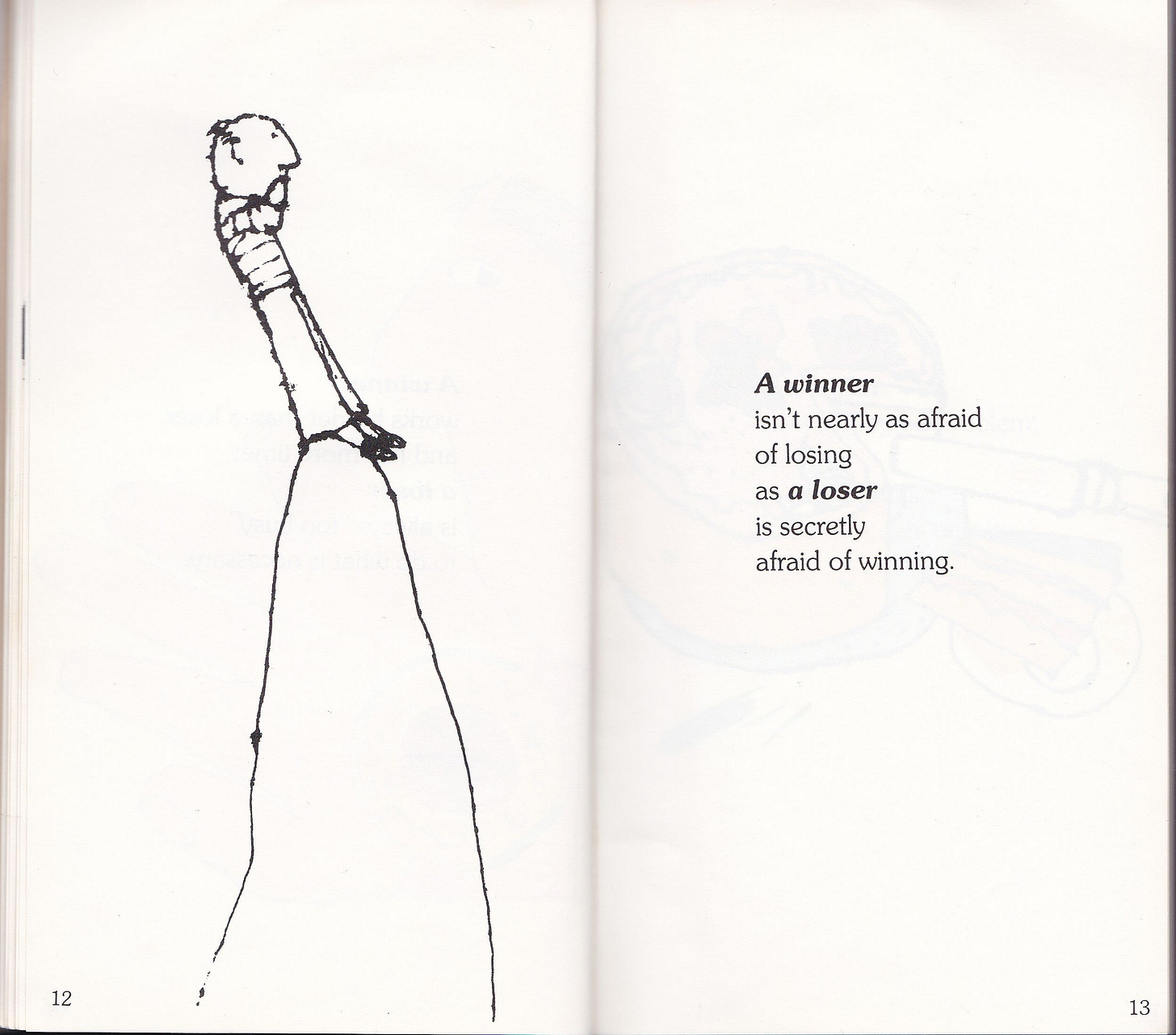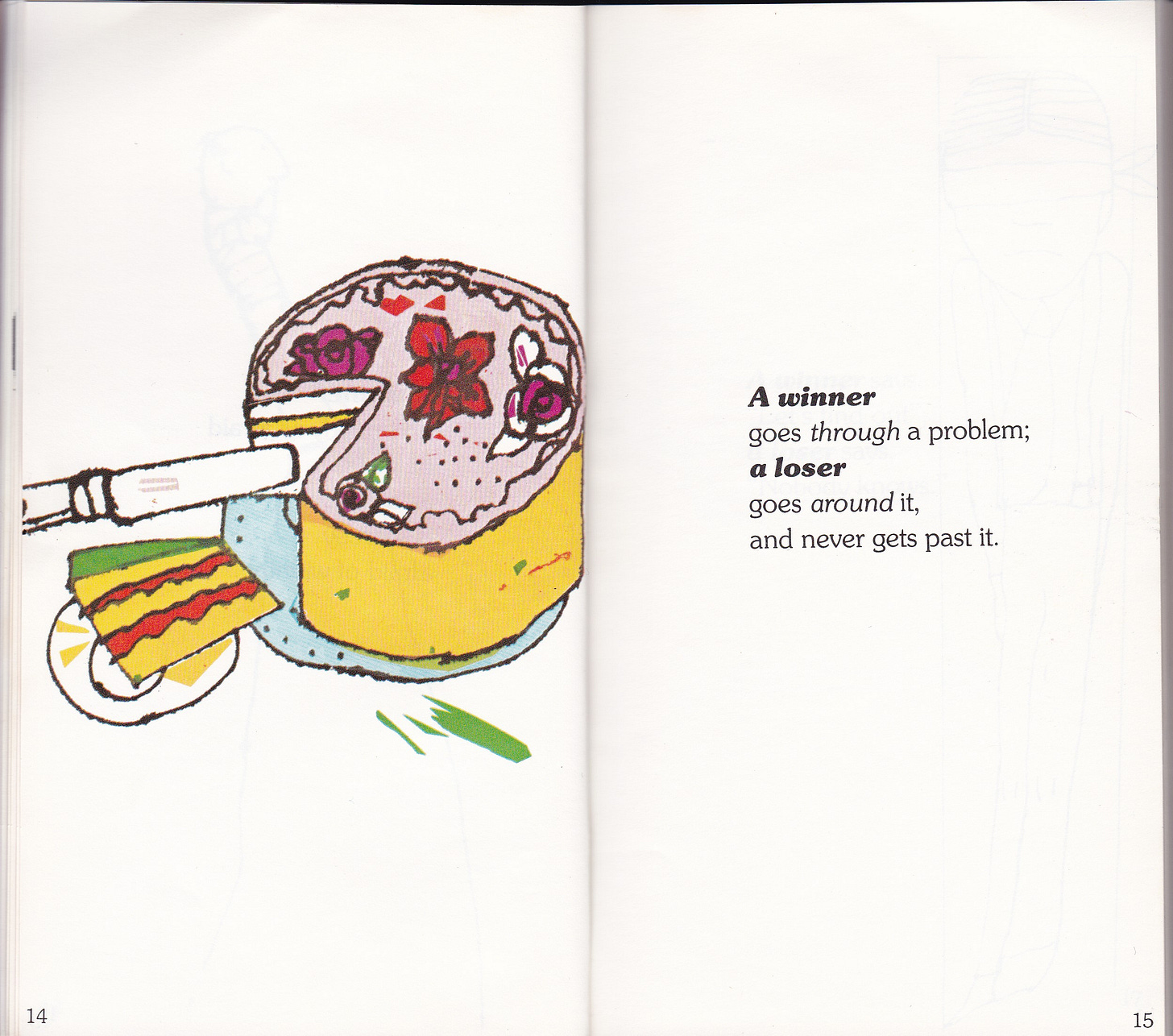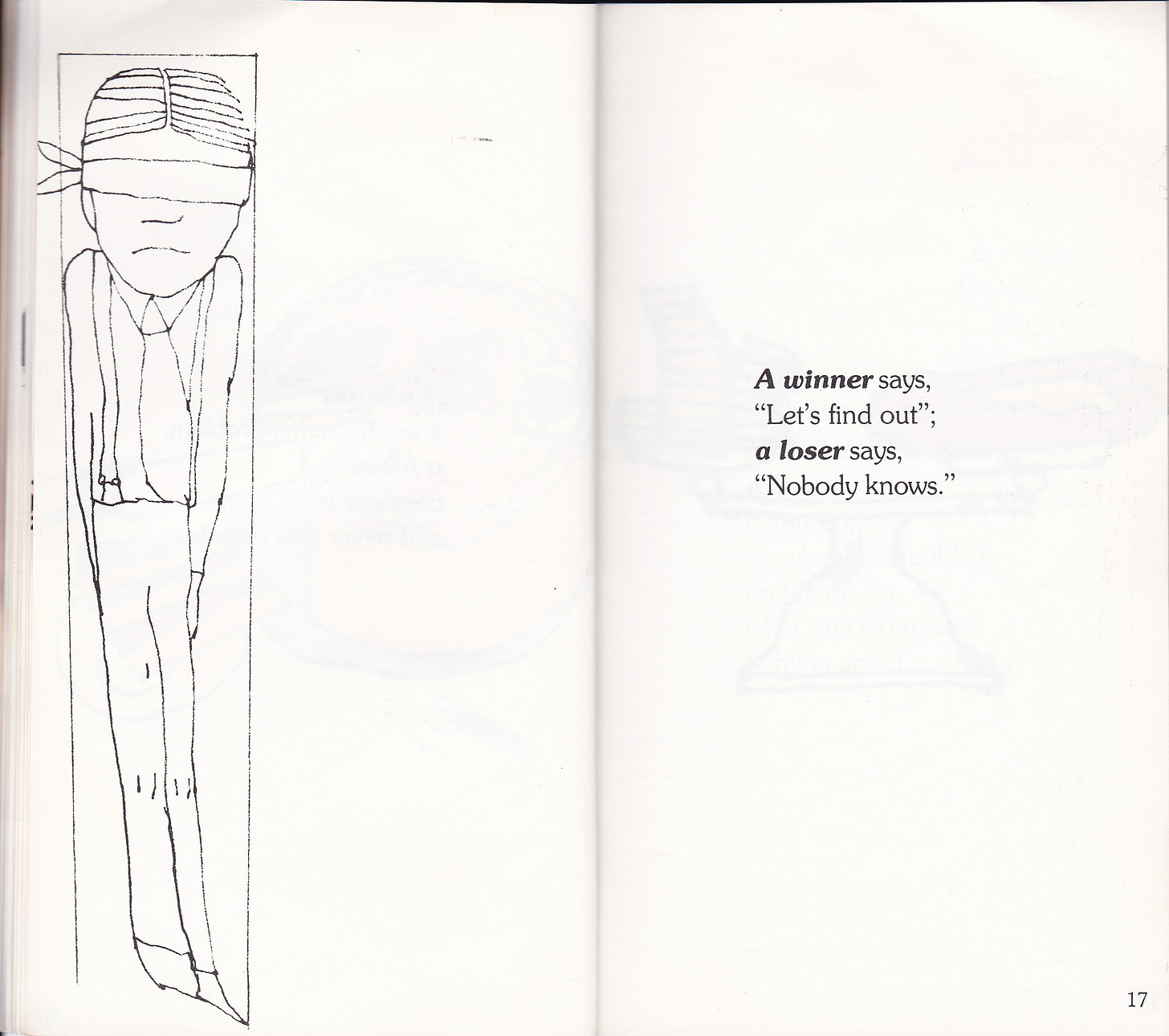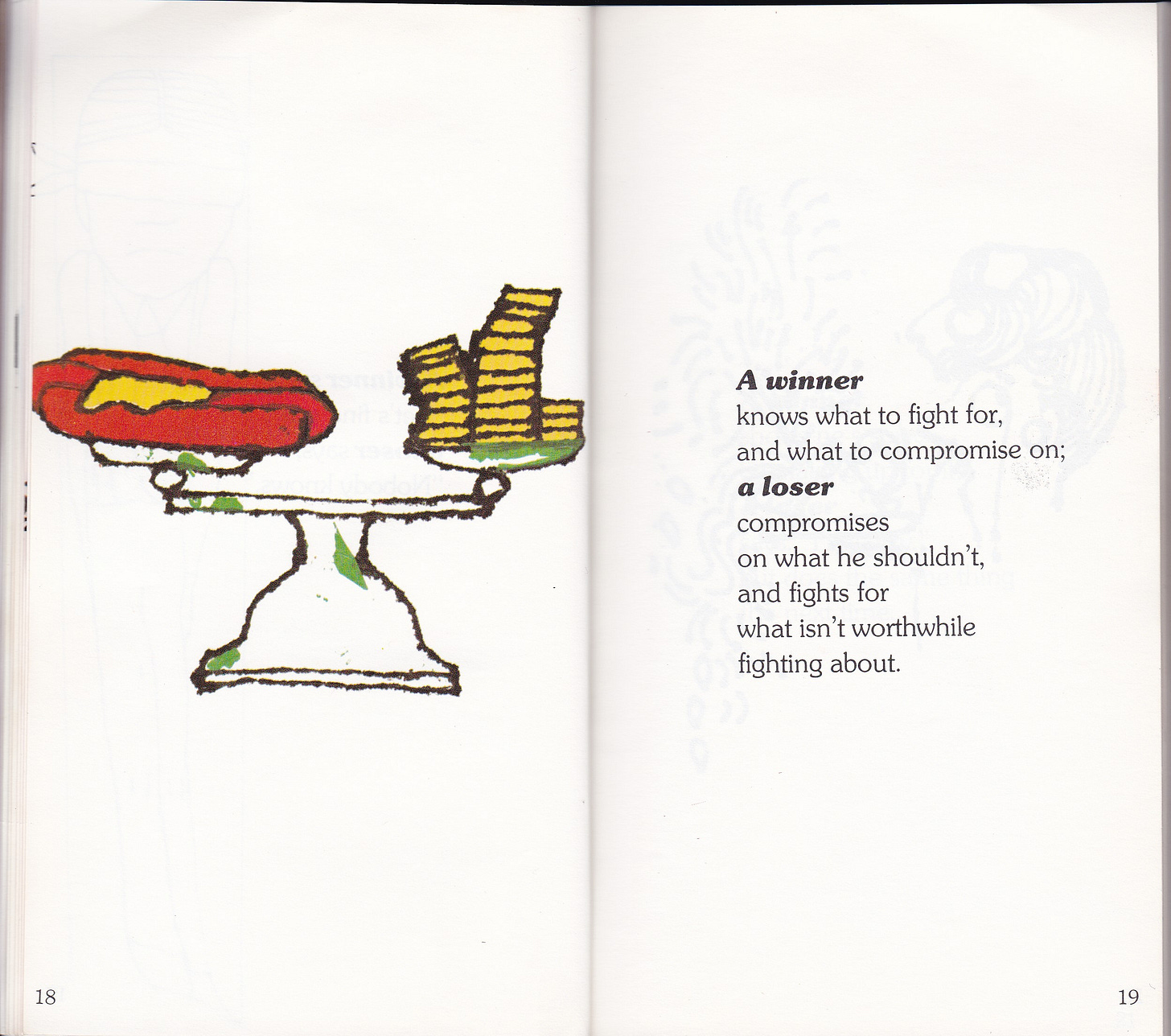Winners and losers part 2
A winner isn’t nearly as afraid of losing as a loser is secretly afraid of winning
Winners and Losers by Sidney J. Harris is a collection of short, pithy aphorisms about what it means to be a good person and to live a good life. The book is out of print and Harris is long dead, so as a fan of his work I’ll be uploading a few scanned pages every Sunday until I run out. Harris and his publisher retain all copyright.
The comics
A winner isn’t nearly as afraid of losing as a loser is secretly afraid of winning.
A winner goes through a problem;
a loser goes around it, and never gets past it.
A winner says, “Let’s find out”;
a loser says, “Nobody knows.”
A winner knows what to fight for, and what to compromise on;
a loser compromises on what he shouldn’t, and fights for what isn’t worthwhile fighting about.
Commentary
Our first comic is about people who define themselves in terms of their resentments and shortcomings. In modern times, we might say they define themselves as being on the side of the oppressed rather than the oppressors.
A winner isn’t nearly as afraid of losing as a loser is secretly afraid of winning.
Harris’s prognosis for these losers is obviously as true today as it was then. In winning, they lose their sense of identity and sense of themselves. They can’t accept this outcome, and so immediately find new ways to identify as a loser.
Next, a simple truism about the value of dealing with problems directly.
A winner goes through a problem;
a loser goes around it, and never gets past it.
In my opinion this view is somewhat rooted in the emancipatory spirit of ‘68, the idea that there must always be a solution to a problem if one has the courage to confront it and demand justice, and this strikes me today as somewhat simplistic or even naïve — many problems in one’s life are in fact insoluble and therefore better avoided. As a general rule of thumb and definition of personal virtue, surely Harris has the right of it. But this one in particular falls flat for me with the wisdom of some life experience.
Next, a statement about the value of curiosity.
A winner says, “Let’s find out”;
a loser says, “Nobody knows.”
I’m an engineer by trade and training, and it’s still surprising how rare genuine curiosity is even among engineers — and it’s far more common there than most places. The typical working software engineer is shockingly uninterested in why things work beyond the surface level, often being totally satisfied with a working solution they don’t understand at all. (/* Don’t touch this line, it needs to be defined here for some reason */). You can get a long way with this mindset, but the true master always demand a depth of understanding that normal people find off-putting.
Finally, a saying about how to behave in conflict.
A winner knows what to fight for, and what to compromise on;
a loser compromises on what he shouldn’t, and fights for what isn’t worthwhile fighting about.
What I love so much about these little sayings is their deceptive depth and nuance. There doesn’t seem to be anything here, at first glance. Of course you should fight for what’s important, and only compromise on things you can afford to! But when I reflect on my own behavior and that of my peers I can see how easy it is to violate these simple rules. In every case, Harris’s loser is more instructive than his winner. Everyone can recall a conflict in which they became so fixated on a petty detail that they lost sight of the bigger picture and came out worse because of it. And in our personal relationships, the thing we compromise on (but shouldn’t) is, all too often, the relationship itself.
That’s all for this week. Come back next Sunday for a new batch. Hope to see you then.





I think the fourth aphorism makes your point about going around, not through. Winners know when they need to go through and when they need to go around; losers insist on going through when they can't and on going around when they shouldn't.
There's a typo in the headline and the lede: it should be Winners, not Winner.